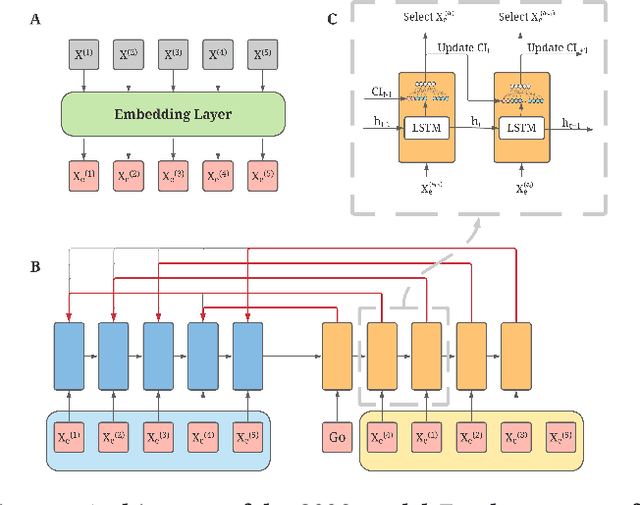Mingjian Lu
Context Determines Optimal Architecture in Materials Segmentation
Feb 04, 2026Abstract:Segmentation architectures are typically benchmarked on single imaging modalities, obscuring deployment-relevant performance variations: an architecture optimal for one modality may underperform on another. We present a cross-modal evaluation framework for materials image segmentation spanning SEM, AFM, XCT, and optical microscopy. Our evaluation of six encoder-decoder combinations across seven datasets reveals that optimal architectures vary systematically by context: UNet excels for high-contrast 2D imaging while DeepLabv3+ is preferred for the hardest cases. The framework also provides deployment feedback via out-of-distribution detection and counterfactual explanations that reveal which microstructural features drive predictions. Together, the architecture guidance, reliability signals, and interpretability tools address a practical gap in materials characterization, where researchers lack tools to select architectures for their specific imaging setup or assess when models can be trusted on new samples.
Action-conditioned On-demand Motion Generation
Jul 17, 2022



Abstract:We propose a novel framework, On-Demand MOtion Generation (ODMO), for generating realistic and diverse long-term 3D human motion sequences conditioned only on action types with an additional capability of customization. ODMO shows improvements over SOTA approaches on all traditional motion evaluation metrics when evaluated on three public datasets (HumanAct12, UESTC, and MoCap). Furthermore, we provide both qualitative evaluations and quantitative metrics demonstrating several first-known customization capabilities afforded by our framework, including mode discovery, interpolation, and trajectory customization. These capabilities significantly widen the spectrum of potential applications of such motion generation models. The novel on-demand generative capabilities are enabled by innovations in both the encoder and decoder architectures: (i) Encoder: Utilizing contrastive learning in low-dimensional latent space to create a hierarchical embedding of motion sequences, where not only the codes of different action types form different groups, but within an action type, codes of similar inherent patterns (motion styles) cluster together, making them readily discoverable; (ii) Decoder: Using a hierarchical decoding strategy where the motion trajectory is reconstructed first and then used to reconstruct the whole motion sequence. Such an architecture enables effective trajectory control. Our code is released on the Github page: https://github.com/roychowdhuryresearch/ODMO
Conditional Sequential Slate Optimization
Aug 13, 2021



Abstract:The top search results matching a user query that are displayed on the first page are critical to the effectiveness and perception of a search system. A search ranking system typically orders the results by independent query-document scores to produce a slate of search results. However, such unilateral scoring methods may fail to capture inter-document dependencies that users are sensitive to, thus producing a sub-optimal slate. Further, in practice, many real-world applications such as e-commerce search require enforcing certain distributional criteria at the slate-level, due to business objectives or long term user retention goals. Unilateral scoring of results does not explicitly support optimizing for such objectives with respect to a slate. Hence, solutions to the slate optimization problem must consider the optimal selection and order of the documents, along with adherence to slate-level distributional criteria. To that end, we propose a hybrid framework extended from traditional slate optimization to solve the conditional slate optimization problem. We introduce conditional sequential slate optimization (CSSO), which jointly learns to optimize for traditional ranking metrics as well as prescribed distribution criteria of documents within the slate. The proposed method can be applied to practical real world problems such as enforcing diversity in e-commerce search results, mitigating bias in top results and personalization of results. Experiments on public datasets and real-world data from e-commerce datasets show that CSSO outperforms popular comparable ranking methods in terms of adherence to distributional criteria while producing comparable or better relevance metrics.
 Add to Chrome
Add to Chrome Add to Firefox
Add to Firefox Add to Edge
Add to Edge